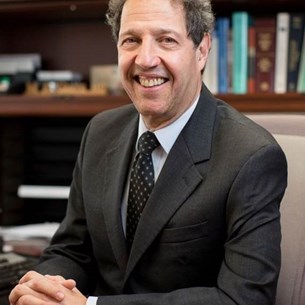Meeting
2015 ASCO Annual Meeting

Mayo Clinic, Rochester, MN
Morie A. Gertz , Martha Lacy , Angela Dispenzieri , Francis Buadi , David Dingli , Suzanne R. Hayman , Shaji Kumar , Nelson Leung , John Anthony Lust , S. Vincent Rajkumar , Stephen J. Russell , VeraJean Suman , William J. Hogan
Background: Autologous stem cell transplant is widely performed for the management of select patients with AL amyloidosis in the United States. There are no phase III trials that document improved overall survival. This phase III trial allowed patients to select between melphalan and dexamethasone or autologous stem cell transplantation. Methods: Eighty-nine patients with biopsy-proven AL amyloidosis elected to receive melphalan and dexamethasone (n = 34) or stem cell transplantation (n = 54). Patients were selected to exclude those for whom cardiac involvement would not have permitted safe autologous stem cell transplantation. Results: Allowing patients to select their preferred treatment resulted in an imbalance of patients between the two arms. Patients that selected melphalan and dexamethasone were younger, were more likely to be ECOG performance status less than 2, and had a higher amyloid stage defined by increasing degrees of cardiac amyloidosis. Patients receiving melphalan and dexamethasone had a three-year progression-free survival of 29% and overall survival of 58.8%. Patients receiving stem cell transplant had a three-year progression-free survival of 51.7% and overall survival of 83.6%. An attempt to match patients between the two arms, in terms of risk, produced 24 matched triplets with no difference in hematologic response. Conclusions: This trial, which did not meet its accrual goals, failed to demonstrate a survival advantage for matched patients undergoing autologous stem cell transplantation. Clinical trial information: NCT00477971
| Arm A n = 33 | Arm B n = 52 | ||
|---|---|---|---|
| Median Age (25th-75th percentile) | 63 years (58-67) | 57 years (53-61) | p < 0.001 |
| Male | 17 (51.5%) | 37 (71.2%) | p = 0.067 |
| ECOG performance status 0-1 2 | 24 (72.7%) 9 (27.3%) | 48 (92.3%) 4 (7.7%) | p = 0.015 |
| Risk group low high | 20 (60.6%) 13 (39.4%) | 37 (71.2%) 15 (28.8%) | p = 0.350 |
| AL stage I II III | 4 (12.1%) 19 (57.6%) 10 (30.3%) | 25 (48.1%) 21 (40.4%) 6 (11.5%) | p = 0.002 |
| Heart as dominant disease site yes no | 22 (66.7%) 11 (33.3%) | 18 (34.6%) 34 (65.4%) | p = 0.007 |
Disclaimer
This material on this page is ©2024 American Society of Clinical Oncology, all rights reserved. Licensing available upon request. For more information, please contact licensing@asco.org
2015 ASCO Annual Meeting
Poster Session
Lymphoma and Plasma Cell Disorders
Hematologic Malignancies—Lymphoma and Chronic Lymphocytic Leukemia
Plasma Cell Disorders
NCT00477971
J Clin Oncol 33, 2015 (suppl; abstr 8595)
10.1200/jco.2015.33.15_suppl.8595
8595
414
Abstract Disclosures
2021 ASCO Annual Meeting
First Author: Efstathios Kastritis
2022 ASCO Annual Meeting
First Author: Paul G. Richardson
2020 ASCO Virtual Scientific Program
First Author: Abdullah S. Al Saleh
2020 ASCO Virtual Scientific Program
First Author: Keren Osman